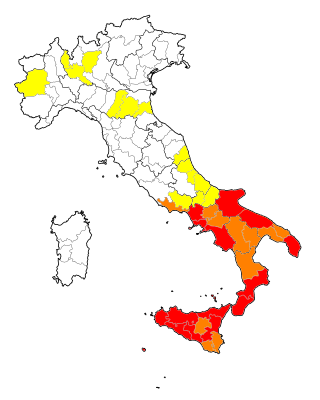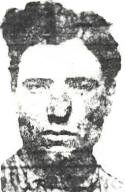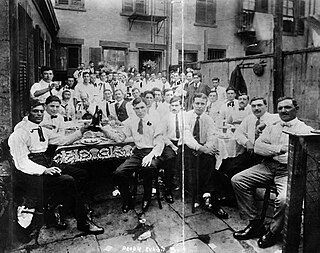Related Research Articles

Organized crime is a category of transnational, national, or local group of centralized enterprises run to engage in illegal activity, most commonly for profit. While organized crime is generally thought of as a form of illegal business, some criminal organizations, such as terrorist groups, rebel forces, and separatists, are politically motivated. Many criminal organizations rely on fear or terror to achieve their goals or aims as well as to maintain control within the organization and may adopt tactics commonly used by authoritarian regimes to maintain power. Some forms of organized crime simply exist to cater towards demand of illegal goods in a state or to facilitate trade of goods and services that may have been banned by a state. Sometimes, criminal organizations force people to do business with them, such as when a gang extorts protection money from shopkeepers. Street gangs may often be deemed organized crime groups or, under stricter definitions of organized crime, may become disciplined enough to be considered organized. A criminal organization can also be referred to as an outfit, a gang, crime family, mafia, mob, (crime) ring, or syndicate; the network, subculture, and community of criminals involved in organized crime may be referred to as the underworld or gangland. Sociologists sometimes specifically distinguish a "mafia" as a type of organized crime group that specializes in the supply of extra-legal protection and quasi-law enforcement. Academic studies of the original "Mafia", the Italian Mafia generated an economic study of organized crime groups and exerted great influence on studies of the Russian mafia, the Chinese triads, the Hong Kong triads, and the Japanese yakuza.
The Genovese crime family, also sometimes referred to as the Westside, is an Italian-American Mafia crime family and one of the "Five Families" that dominate organized crime activities in New York City and New Jersey as part of the American Mafia. They have generally maintained a varying degree of influence over many of the smaller mob families outside New York, including ties with the Philadelphia, Cleveland, Patriarca, and Buffalo crime families.
The Black Mafia, also known as the Philadelphia Black Mafia (PBM), Black Muslim Mafia and Muslim Mob, was a Philadelphia-based African-American organized crime syndicate. The organization began in the 1960s as a relatively small criminal collective in South Philadelphia, known for holding up neighborhood crap games and dealing in the illegal drug business, but at its height of operation in the early 1970s until about the early 1980s, it managed to consolidate power and control a large portion of criminal activity in various African-American neighborhoods throughout Philadelphia and the Delaware Valley, including South Jersey, Chester, and Wilmington. In addition to drug trafficking, burglary, and armed robbery, the Black Mafia was also engaged in traditional organized crime activities such as political corruption, extortion, racketeering, prostitution, loansharking, number running, and other illegal gambling rackets.

Wah Ching is a Chinese American criminal organization and street gang that was founded in San Francisco, California in 1964. The Wah Ching has been involved in crimes including narcotic sales, racketeering, and gambling.
The Irish Mob is a usually crime family–based ethnic collective of organized crime syndicates composed of primarily ethnic Irish members which operate primarily in Ireland, the United States, the United Kingdom, Canada and Australia, and have been in existence since the early 19th century. Originating in Irish-American street gangs – famously first depicted in Herbert Asbury's 1927 book, The Gangs of New York – the Irish Mob has appeared in most major U.S. and Canadian cities, especially in the Northeast and the urban industrial Midwest, including Boston, New York City, Philadelphia, Pittsburgh, Baltimore, Cleveland, and Chicago.

Criminal organizations have been prevalent in Italy, especially in the southern part of the country, for centuries and have affected the social and economic life of many Italian regions. There are major native mafia-like organizations that are heavily active in Italy. The most powerful of these organizations are the 'Ndrangheta from Calabria, the Cosa Nostra from Sicily, and the Camorra from Campania.

Jewish-American organized crime initially emerged within the American Jewish community during the late 19th and early 20th centuries. In media and popular culture, it has variously been referred to as the Jewish Mob, the Jewish Mafia, the Kosher Mob, the Kosher Mafia, the Yiddish Connection, and Kosher Nostra or Undzer Shtik. The last two of these terms are direct references to the Italian cosa nostra; the former is a play on the word for kosher, referring to Jewish dietary laws, while the latter is a calque of the Italian phrase 'cosa nostra' into Yiddish, which was at the time the predominant language of the Jewish diaspora in the United States.

The Atlantic City Conference held between 13–16 May 1929 was a historic summit of leaders of organized crime in the United States. It is considered by most crime historians to be the earliest organized crime summit held in the US. The conference had a major impact on the future direction of the criminal underworld and it held more importance and significance than the Havana Conference of 1946 and the Apalachin meeting of 1957. It also represented the first concrete move toward a National Crime Syndicate.
Francesco "Frank" Zito was a Sicilian-American mobster who controlled criminal activities in Central and Southern Illinois for over twenty years, providing protection from law enforcement and rival competitors from his base of operations in Springfield, Illinois. It can be debated if Zito was head of his own crime family or, he may have been a powerful capo of the Chicago Outfit with his own crew based in Central Illinois. This information is unclear and it seems as though the files on Mr. Zito lack the investigatory evidence that he was in fact the "Godfather of the Prairie." In any case, Zito was a very powerful force in Springfield and the Central and Southern areas of Illinois.
Triads in the United Kingdom first appeared during the post-World War era with the 14K Triad emerging in Chinese communities in London, Birmingham, Liverpool and Manchester in England and Glasgow, Edinburgh and Dundee in Scotland as early as 1952. A later migration followed as members of Chung Mon's organization fled Amsterdam following the Triad leader's death in 1975 as well as those from Hong Kong during the 1980s.
Alema Leota was an alleged Hawaiian organized crime boss of Samoan descent during the 1960s and 1970s who led an unsuccessful nonpartisan campaign for the Governor of Hawaii during the 1978 election. He was defeated by former Governor George Ariyoshi during the general election.
The American Mafia, commonly referred to in North America as the Italian-American Mafia, the Mafia, or the Mob, is a highly organized Italian American criminal society and organized crime group.
The 14K (十四K) is a triad group based in Hong Kong but active internationally. It is the second largest triad group in the world with around 20,000 members split into thirty subgroups. They are the main rival of the Sun Yee On, which is the largest triad.
Charles Gargotta, also known as "Mad Dog", (1900–1950) was a Kansas City, Missouri, gangster who became a top enforcer for the Kansas City crime family.

The Los Angeles crime family, also known as the L.A. Mafia or the Southern California crime family, and dubbed "the Mickey Mouse Mafia" by former Los Angeles Police Chief Daryl Gates, is an Italian-American organized crime syndicate based in Los Angeles as part of the larger Italian-American Mafia. Since its inception in the early 20th century, it has spread throughout Southern California. Like most Mafia families in the United States, the Los Angeles crime family gained wealth and power through bootlegging alcohol during the Prohibition era. The L.A. family reached its peak strength in the 1940s and early 1950s under Jack Dragna, although the family was never larger than the New York or Chicago families. The Los Angeles crime family itself has been on a gradual decline, with the Chicago Outfit representing them on The Commission since the death of boss Jack Dragna in 1956.

Armenian Power 13, also known as AP, the Armenian Mob, or Armenian Mafia is an Armenian criminal organization and street gang founded and currently based in Los Angeles County, California. They are involved in drug trafficking, murder, assault, fraud, identity theft, illegal gambling, kidnapping, racketeering, robbery and extortion. They are believed to have around 200 members and hundreds of associates, according to the U.S. attorney’s office. They are also well known for their connections with the Mexican Mafia.

The Brooklyn Camorra or New York Camorra was a loose grouping of early-20th-century organized crime gangs that formed among Italian immigrants originating in Naples and the surrounding Campania region living in Greater New York, particularly in Brooklyn. In the early 20th century, the criminal underworld of New York City consisted largely of Italian Harlem-based Sicilians and groups of Neapolitans from Brooklyn, sometimes referred to as the Brooklyn Camorra, as Neapolitan organized crime is referred to as the Camorra.
Although organized crime has always existed in Sweden, it has risen significantly in the 2000s. The number of organized criminal groups operating in the country continues to rise. In 2018, Sweden had the highest gun deaths in total across Europe, and deaths involving guns tripled in Sweden between 2012 and 2020.
Organized crime in France is primarily based in major cities like Marseille, Grenoble, Paris, and Lyon. It is often referred to as grand banditisme in France.
The Greek mafia is the colloquial term used to refer to various organized crime elements originating from Greece. Indigenous organized criminal groups are well-entrenched in the largest Greek urban centers, particularly in Athens.
References
- 1 2 "Organized Crime Syndicates". geocities.ws. Retrieved 6 May 2015.
- 1 2 3 Cooper, George; Daws, Gavan (1990). Land and Power in Hawaii. University of Hawaii Press. ISBN 9780824813031 . Retrieved 6 May 2015– via google.be.
- ↑ "The Milwaukee Journal - Google News Archive Search". google.com. Retrieved 6 May 2015.
- 1 2 Apgar, Sally (February 9, 2004). "Alleged shooter has roots in old isle underworld". starbulletin.com. Retrieved 6 May 2015.